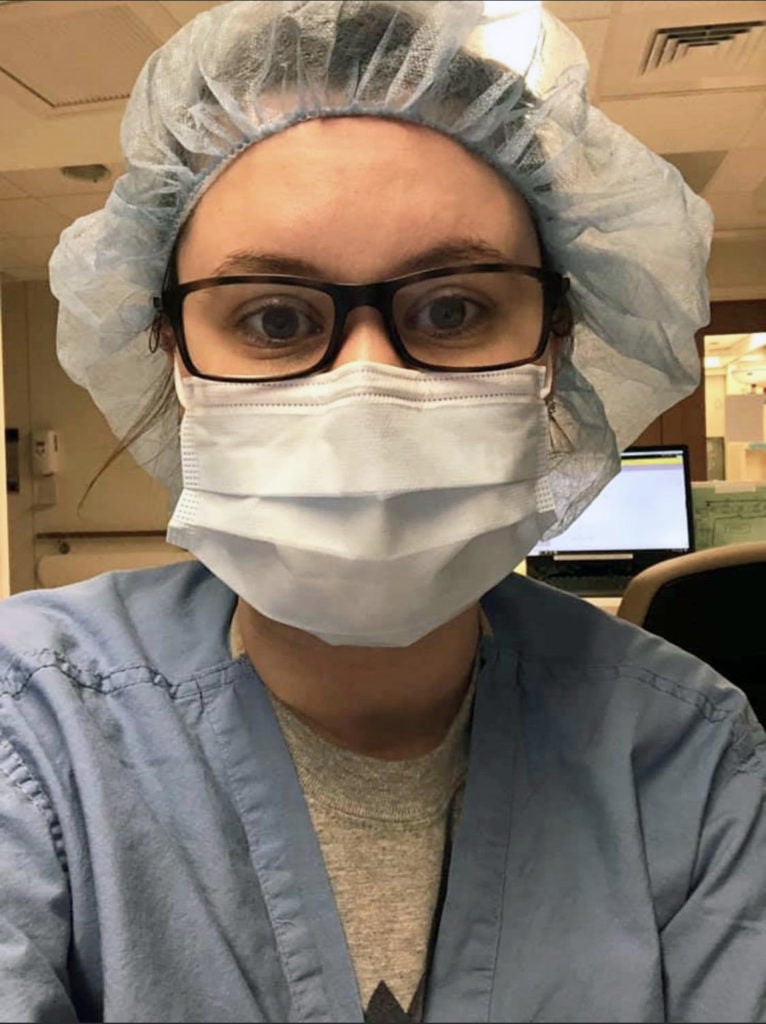 Meet Kasey Hilpert
Meet Kasey Hilpert
Major: B.S.N. | Class of 2019
Hometown: Martinsville, WV
Where do you work now and what do you do in your job?
“I work at WVU Medicine in Morgantown, West Virginia as a registered nurse on a Cardiothoracic unit. Generally, I take care of thoracic patients who needed hernia repairs, lung surgeries, diaphragm repairs, esophageal surgeries – anything thoracic. Many have chest tubes or drains of some sort.”
I understand you’re one of many on the frontlines of the COVID-19 crisis. Can you tell me about that and how your life has been impacted as a nurse?
“COVID-19 has drastically changed the care I’m giving now. My unit has become the COVID-19 quarantine floor so I don’t have thoracic patients anymore. Most of the patients now are requiring respiratory management. A lot of them are also in the older population with many co-morbidities, which I have to manage as well. It’s scary because we have to ‘suit up’ before entering each room. We ask ourselves, ‘What happens in the case of an emergency and it takes us all twice as long to get to the patient?’ Every second is vital in emergencies and a lot of those seconds are spent gearing up to safely care for the patient. We are seeing a lot of patients come and go at once due to negative results (sending them home) or positive / pending with symptoms. We are taking less patients per nurse now, but it’s just as busy and time consuming as our usual three patients per nurse.”
How did Marshall prepare you for this role?
“I’d say Marshall prepared me most for this role by giving me excellent clinical instructors. My instructors often sought out patients on the floor who had drains and tubes so they could teach us about the purpose and reasoning for having such.”
What’s one thing you’d want prospective students to know about Marshall and our nursing program?
“Ask all the questions. Ask the ‘stupid’ questions. Figure out who is going to be your biggest supporter – friend, classmate and staff. The only way to find out what you don’t know is to ask questions. It’s better to be sure than to write a whole paper or do an assignment the wrong way. You’re also going to want to find a classmate who will stick by you the whole time. Even if they’re in different clinical groups, you’re going to want people to look over things for you, help you figure out what you’re not doing right. The best thing you can do is have multiple people there for you (but always be there for them too).”

 Meet Kasey Hilpert
Meet Kasey Hilpert